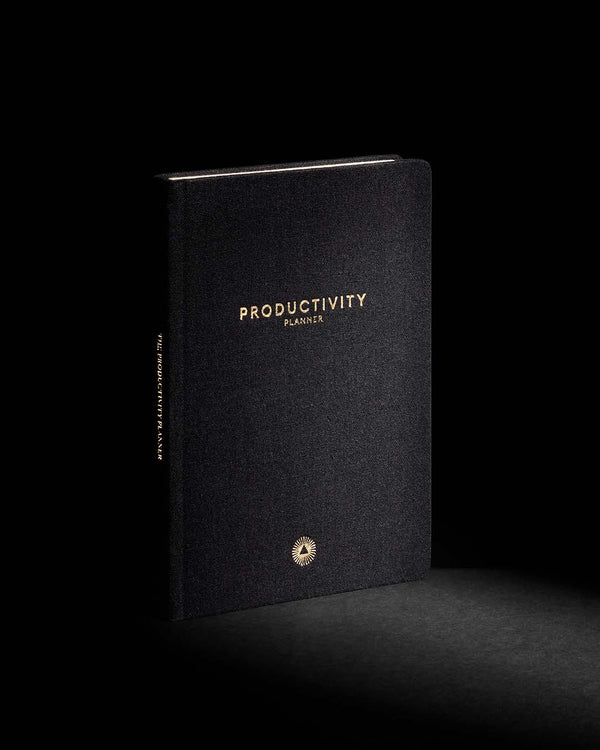How to Stop the Clock and Thrive

Time is relative not only in Albert Einstein’s theory of relativity but also in our everyday lives. At the time of writing this article, it’s 5:47 PM in London. At the same time, it’s 6:47 PM in Paris, 12:47 PM in New York, and 1:47 AM in Tokyo. Circumstances alter cases.
Then, there’s our subjective perception of time. We lose track of it when we’re having fun, yet the hours drag when we’re forced to do something much less enjoyable. For shift workers, their sometimes unpredictable work schedules might distort their perception of time and make them confuse days of the week.
For children, time does not seem to exist at all. They have yet to learn the social norms that control it so they are free to believe they can play forever with no interruption (dinner time? But we’re in the middle of building a castle!). They are blissfully unaware of time passing so they have no regard for the clock.
When we’re in a rush, we tend to think that we don’t have time, or that we’re running out of it. But we’re only late because, together with the person we’re on our way to see, we previously established a certain point in time as the finish line. All deadlines are rules we impose on ourselves to control chaos and measure progress.
Time is the fourth dimension of your reality. It’s relative, elusive, ethereal even. It likes to slip through our fingers, toy with our feelings, and dictate the course of our days. Still, there are ways to prevent our life from tick-tocking away so fast.
You Only Live Once
We all have our individual expiration dates and it’s a true blessing not to know what they are. However, there’s no point living in denial either. And as we get older, we feel like time is only accelerating, like we’re heading towards this day full speed ahead.
There are two explanations for this. The first one is that each new week, month, or year represents a smaller and smaller percentage of the life you’ve already lived. The other explanation is that our brains focus on novelty. Therefore, when we have our first kiss, or when our biggest dream comes true, time seems to slow down.
Is that the natural remedy to the perceived acceleration of time? Simply to have more new experiences? Let’s hear it from those who chase adventures for a living. Nathaniel Drew, writer and filmmaker, made it his life’s mission to throw himself into the unknown as much as possible. And he’s pretty clear on this: constant novelty or not, time slips by equally fast.
As Nathaniel points out, anything in life can be a distraction, even new experiences. It all depends on the why behind our actions. Because there’s absolutely nothing wrong with living life to the fullest to extend the limits of our reality and broaden our horizons. But what if we pack so much into our days only to escape something within ourselves that we don’t want to face? Wouldn’t we be losing all of our precious time this way?
Time Is of the Essence
The sign of our times is that a substantial amount of pressure has been imposed on us to wear many hats with efficiency and in a timely manner. Yet, studies show that multitasking hampers our productivity, makes us more distracted and, ironically, slows us down. In fact, there’s no such thing as multitasking. What we’re really doing is swiftly shifting our attention from one activity to the next while time slips away unnoticed.
Choosing quality over quantity whenever possible can significantly alter our perception of time. At work, added layers of meaning and depth sharpen our focus and help us enjoy both the process and the results of our labor. In relationships, one of the five love languages―quality time―is a priceless gift of undivided attention, with which we deepen the portion of our reality we share with our loved ones, including the fourth dimension: time.
“All we have to decide is what to do with the time that is given us.”
― J.R.R. Tolkien
Sliding on the surface of minutes and hours without reflecting on our timeline will make us wake up one day surprised we are 52 when yesterday, it seems, we were only 25. How do we respect our finite time and deepen our sensation of it?
Stop and Smell the Roses
In order to stop time from passing too fast, we need to stop and find opportunities for stillness, mindfulness, and reflection. And because that means cutting back on screen time (research shows, technology speeds up our perception of time), many of us might be hesitant about the idea of pressing pause. But we need to be wary of comfort.
For example, most of those who attempted a Vipassana meditation course, in which you learn to meditate in silence for ten days straight, report experiencing true discomfort. As in, those ten days feel more like ten weeks. Therefore, one of the ways to slow down time would be to seek discomfort. And since the course is free, the only thing you require to take it is… time.
In his writings titled On the Shortness of Life, Seneca, one of the stoic philosophers, wrote about the fact that life is actually long, we simply waste a lot of it. So we need to identify our time-stealers. To each their own but one of the most common are:
- worrying, especially about what’s beyond our control,
- feeling stuck in a survival job rather than a fulfilling one,
- feeling unhappy in a loveless relationship,
- living in a toxic environment, surrounded by negative mindsets,
- not asking for help when you need it.
In his acceptance speech for his first Tony award, actor André De Shields said, “Slowly is the fastest way to get to where you want to be.” Tackle your problems one at a time, one day at a time, one foot in front of the other. Slow and steady wins the race and enjoys the view along the way.
Time Flies
So often we say we would start a business if we had more space in our schedules. We’re convinced our book would change lives but we struggle to find five hours a week to write it. But we forget that we have total control over what we do with our time.
Stop, relax your shoulders, do more of what makes you happy and try to get into a state of flow to ease, or even ignore the passing of time for a while. Maybe, just maybe, if we start measuring our fast-paced days in heartbeats rather than seconds, we’ll not only get more done, but also have the time of our lives.
“In the end, it's not the years in your life that count. It's the life in your years.”
― Abraham Lincoln







